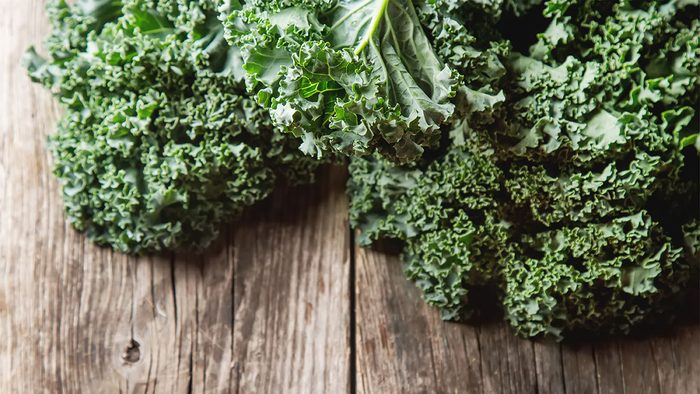
Dark leafy greens
You probably know the many health benefits of starting a vegan diet. But when you take dairy off the menu, you need to find other sources of calcium – and dark leafy greens check that box off and should definitely be found on your vegan shopping list. Felicia Spence, R.D. at Hilton Head Health, recommends choosing one dark leafy green a day, such as kale, collards, spinach, or Swiss chard, and eating lots of it. “The darker the green the better,” she says, suggesting adding greens to smoothies, salads, or as part of a hot meal. But don’t ignore other colours of vegetables. “Eat a wide variety of different colours,” suggests Wendy Cohen, R.D. Orange vegetables such carrots and bell peppers contain beta-carotene, which converts into vitamin A in the body and is necessary for good vision and eye health, a strong immune system, and healthy skin and mucous membranes.
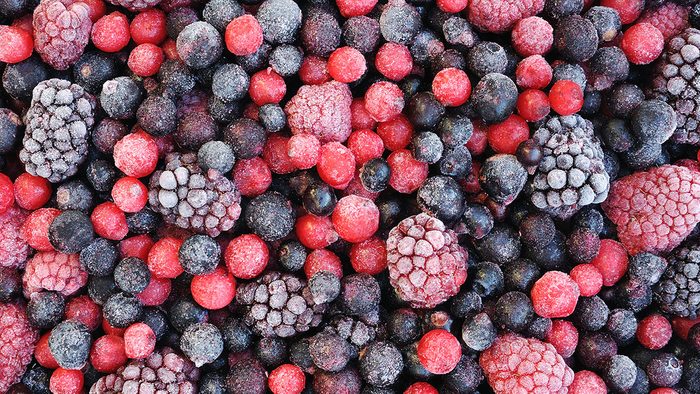
Frozen fruits
The easiest way to add a wide range of fruits to your vegan diet is to buy frozen. “Frozen produce is picked at the peak of freshness and flash frozen,” explains Spence. “Frozen fruit is great in smoothies or thawed and used as a topping to oatmeal or a smoothie.” All berries, especially wild blueberries, are packed with antioxidants and vitamin C, which we need to keep our immune systems strong. Cohen advises buying organic whenever possible because berries are high on the pesticides list.
Dried fruit is another great addition to a plant-based diet, but look for brands that have no added sugar. Spence recommends dates, which are naturally sweet and contain iron, fibre, and magnesium.
Start your day off right with one of our healthy smoothie recipes.
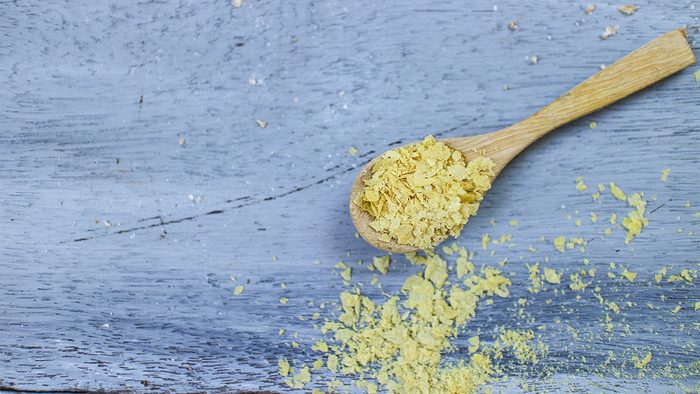
Nutritional yeast
Nutritional yeast sounds gross but it’s so well-loved in the vegan community that it actually has a nickname – “nootch.” Nutritional yeast, such as Bragg Organic Nutritional Yeast, is an inactive yeast made from beet molasses and sugar cane and a good source of protein, as well as the B vitamins that are often lacking in a vegan diet. Nutritional yeast is also incredibly versatile, as it can replace cheese in any recipe to make it vegan – try it in mac and cheese, pesto, and cheese sauces. “I like to sprinkle it on popcorn,” says Stephanie Perruzza, MS, RD, Health & Wellness Specialist at KIND Snacks.
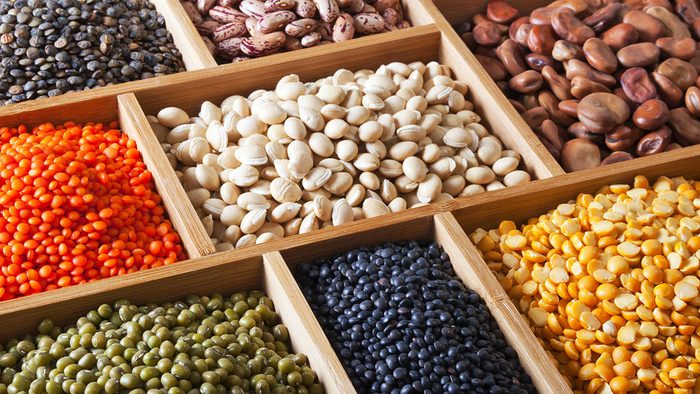
Beans and legumes
When you don’t get iron from meat you have to find it somewhere else, and beans and legumes are great sources of iron for vegans. Chickpeas, lentils, kidney beans, split peas, black beans, and other types of beans are also good sources of fibre, protein, calcium, zinc, and B vitamins. Cohen suggests soaking and sprouting beans and legumes in water overnight to remove inhibitor enzymes, which makes it easier for your body to digest and assimilate them.
For a meal that’s high in fibre and protein, try our Tuscan-style mixed bean soup.
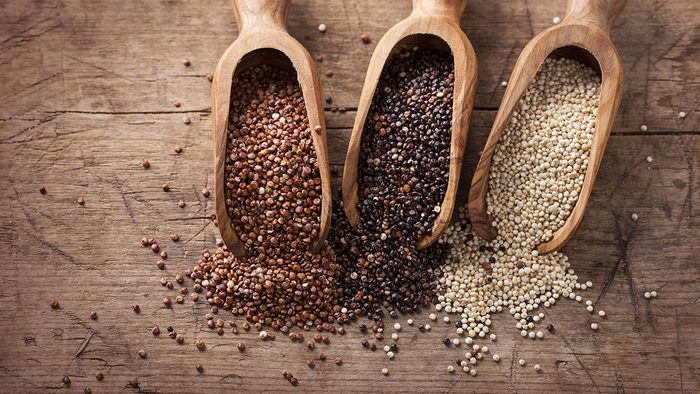
Quinoa
Whole grains – rich in fibre, protein, B vitamins, and zinc – are a vegan food staple. Spence recommends eating a whole grain with every meal, as it fills you up and keeps you satiated until your next meal or snack. “Eating an abundance of fruits and vegetables are good, but a big portion of fibre has to come from other foods like whole grains,” she explains. Though you can choose barley, spelt, wheatberries and amaranth. Cohen recommends quinoa (even though it’s technically a seed) for its versatility: “You can batch cook it and it stays fresh up to three days in the fridge.”
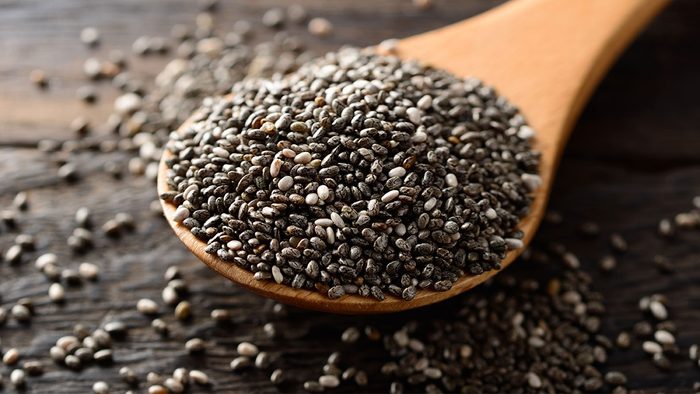
Nuts and seeds
Nuts and seeds are easy, satisfying, nutritious vegan snacks, packed with the healthy omega-3s vegans run the risk of missing because they are most abundant in fatty fish and eggs. “Omega-3s offer numerous health benefits, including reducing the risk for heart disease and decreasing inflammation in the body,” explains Deborah Orlick Levy, MS, RD, and Carrington Farms Health & Nutrition Consultant. “Chia seeds and flax seeds are rich in omega-3s and are a good source of fibre and other nutrients for a healthy body and healthy bones. Try chia seeds in yogurt, flax seeds in cereal or oatmeal, or use a blend of both for your next smoothie or vegan muffin recipe.” Chia is among an elite set of plant-based foods that are a complete protein.
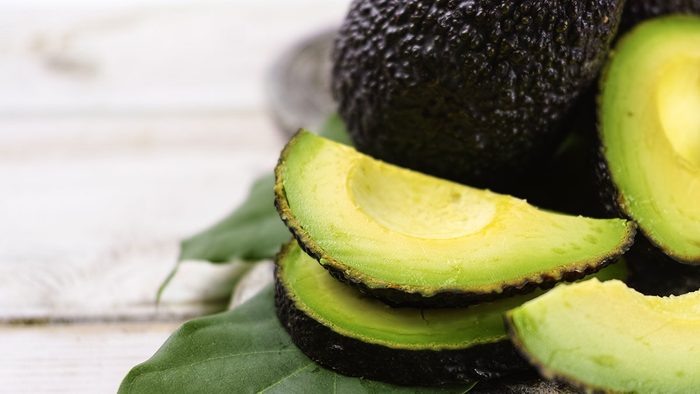
Avocados
In the vegan diet, avocados – packed with healthy fats and vitamins A, C, E, and K – do much more than make guacamole. “Avocados turn any ordinary meal into a creamy, satiating, wonderful meal,” says Cohen. “Make avocado toast, use it as a topper for salads, and create creamy smoothies and even chocolate pudding. Wrap avocado in nori sheets with some brown rice or quinoa and cucumber or carrots and you have vegan sushi.”
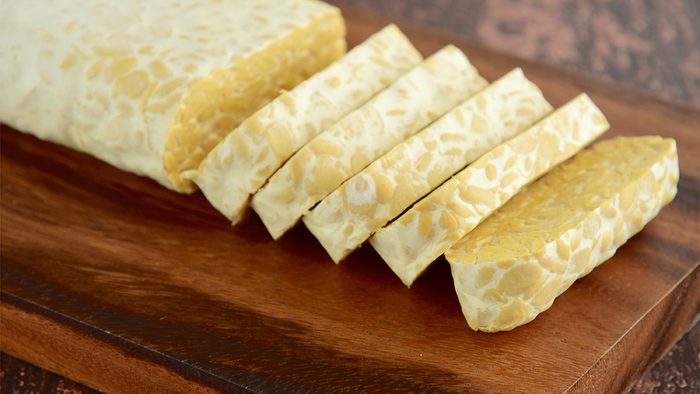
Tempeh
Soy products, such as tofu, tempeh, and soy milk are nutrient-dense foods and excellent sources of protein, a complete set of essential amino acids, and a long list of vitamins and minerals and should have a spot on your vegan shopping list. Just as soy milk can be used cup-for-cup instead of dairy milk in baking, tofu can be a great replacement for cream or evaporated milk when baking, says Perruzza. Use tempeh as a meat substitute in sandwiches and stir-fry recipes.
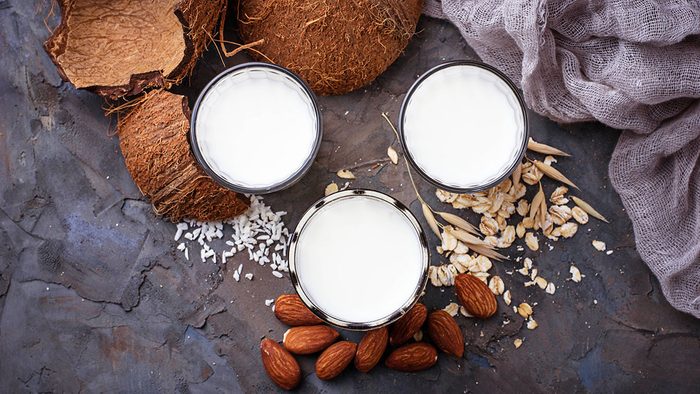
Vegan “dairy”
You don’t have to forgo butter and cheese as a vegan – you just have to find plant-based alternatives. Vegan “dairy” products, such as I Can’t Believe It’s Not Butter! Vegan Spread, are completely free of milk and animal-based enzymes and instead made from a mix of vegetable oils. Spence recommends looking for products that don’t contain trans fat and still using them sparingly to limit calorie consumption. “Although it’s a plant-saturated fat, it is still a saturated fat that we have to limit,” she says. You can also try “milks” made from nuts, including almond and cashew.
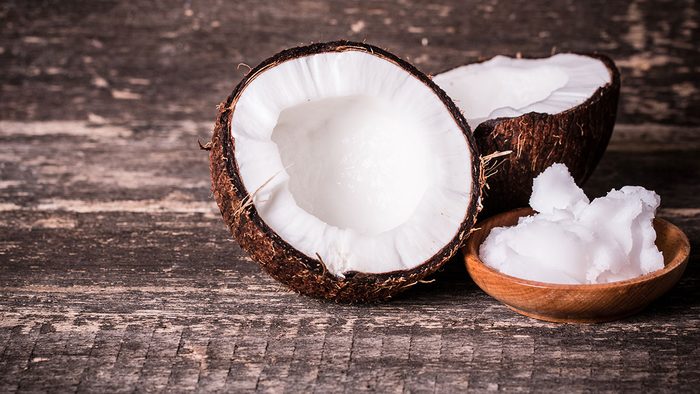
Olive oil and coconut oil
According to Orlick Levy, olive oil and coconut oil are great options for a vegan diet and should be on your vegan shopping list, as they both contain better-for-you fats called monounsaturated fatty acids (MUFA), which can help lower the risk of stroke and improve insulin sensitivity. Although coconut is higher in saturated fat, it is comprised of high levels of MCTs (medium chain triglycerides) that are quickly broken down and used for energy, not stored as fat like with other oils. “Both of these oils offer beneficial fats and should be considered an essential part of the vegan diet,” says Orlick Levy. “However, the key is to use fats sparingly to get the health benefits, without the caloric overload.” Just make sure you’re not buying fake olive oil!
If you have a sweet tooth, you’ll love this chocolate olive oil cake.
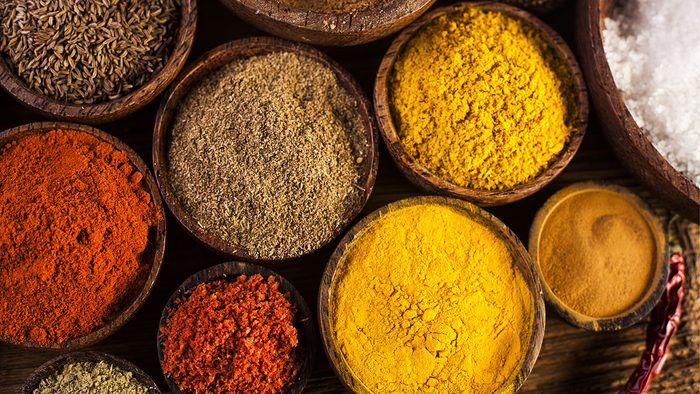
Herbs and spices
Vegan or not, herbs and spices can be the difference between a bland dish and a brilliant one. Spence recommends playing with spices to see what you like and don’t like: “It will make food interesting. Salt can only do so much when it comes to flavouring foods. Expand your spice rack and start experimenting!” Cohen recommends cinnamon for natural sweetness to help curb sugar cravings between meals, and earthy, nutty cumin for its anti-inflammatory properties and to aid digestion.
Originally published as 11 Essential Items for Your Vegan Shopping List on ReadersDigest.com.
